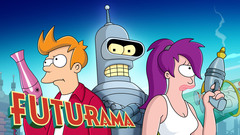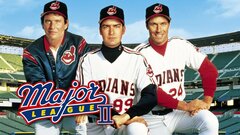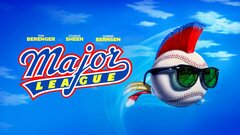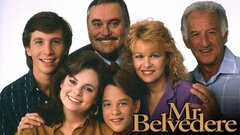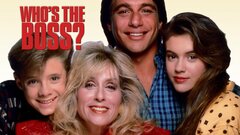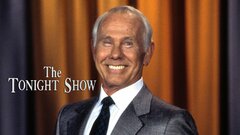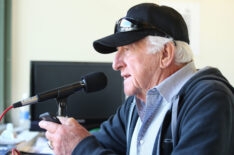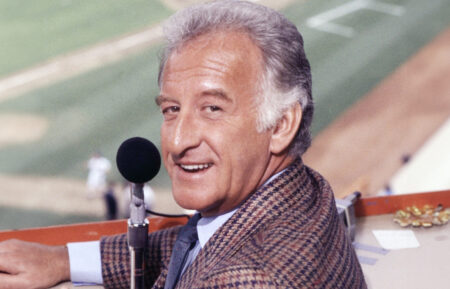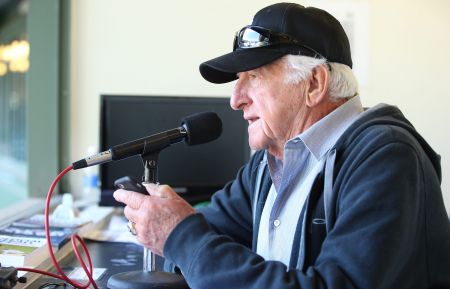Had Bob Uecker's place in history ended with his professional baseball career, he might never have achieved the degree of fame and popularity he enjoyed for over 50 years. As a player for the Milwaukee Braves and other clubs, Uecker was a solid if unremarkable catcher and a woeful batter, but after leaving the sport in 1967, he found his true calling as a broadcaster for the Braves on radio and television.
His quick wit and knack for self-deprecating humor quickly elevated him to the top of his new profession, and even earned him work as a pitchman and occasional actor. Above all, Uecker brought a sense of humor and humanity to a sport that often emphasized statistics over achievement, and served as a stellar example of making good on second chances.
Born Robert George Uecker (pronounced YOO-ker) in Milwaukee, WI on Jan. 26, 1935, he grew up watching his hometown's minor league team, the Milwaukee Brewers, while attending Milwaukee Tech High School. After a stint in the U.S. Army, he signed a professional contract with the Braves' minor league outfit before making his debut as a catcher for the Major League team in 1962. As a hitter, Uecker was notoriously mediocre, and his average declined through his career to a dismal .200 at its conclusion. But he was a sound defensive player, with few errors to his statistics and a solid fielding percentage (the amount of times a ball is properly handled while batted or thrown) of .981.
Uecker began and ended his Major League career with the Braves; he left the organization in 1963 to play for the St. Louis Cardinals, and was a part of their club when they took the World Series championship in 1964. Two years later, Uecker was a member of the Philadelphia Phillies for the 1966-67 season before returning to the Braves, which had moved to Atlanta, for his final season in 1967.
In 1971, the Braves hired Uecker to provide color commentary for their radio and television coverage of home games. He displayed a distinct gift for both the keen insight required for play-by-play, as well as a sharp, self-deprecating wit that made him a favorite with both listeners and team management. One fan, trumpeter Al Hirt, scored him an appearance on "The Tonight Show Starring Johnny Carson" (NBC, 1962-1992), where his humorous stories about his career and the game itself earned him regular rotation as a guest. Carson himself bestowed the ironic nickname "Mr. Baseball" on Uecker.
By the mid-1970s, Uecker had graduated to providing coverage for "Monday Night Baseball" (ABC, 1976-1988) as well as numerous All-Star, League Championship and World Series games. He also served as host of the mock sports show "Bob Uecker's Wacky World of Sports" (syndicated, 1985-1990), which later became the long-running "Lighter Side of Sports" (syndicated, 1986- ), and appeared regularly in Miller Lite's comic commercials. Each helped to develop Uecker's on-air persona - loud, self-impressed and utterly unaware of his mediocre history as a player. In one famous commercial, Uecker was removed from his seat at a baseball park, and assumed he was being brought to the front row. At the end of the spot, he was revealed as sitting in the last row of seats in the stadium, commonly known as "the nosebleed seats."
These and other appearances and promotional spots led to Uecker's debut as an actor on "Mr. Belvedere." The genial family comedy cast him as the very Uecker-esque George Owens, a sportswriter who hired a butler (Christopher Hewett) to manage his family. Though never a ratings hit, "Belvedere" was popular with families, and enjoyed a solid run for six seasons. During this period, Uecker also released "Catcher in the Wry," a well-received collection of stories from his time in the major league. Uecker made the leap to motion pictures with the cult favorite "Major League" (1993), playing Harry Doyle, the hard-drinking, acid-tongued broadcaster for the Cleveland Indians. He would repeat the role in the mediocre sequel, "Major League II: Back to the Minors" (1998), but by the time of its release, Uecker was concentrating mostly on his real-life broadcasting career with the Brewers, which was drawing more acclaim than his tenure as a baseball player.
He was named Wisconsin Sportscaster of the Year five times, and was inducted into the Wisconsin Sports Hall of Fame in 1998. Three years later, he was the first player-turned-broadcaster to be inducted into the Radio Hall of Fame, where he joined such pioneers of the medium as Mel Allen, Red Barber and Vin Scully.
The year 2003 saw him receive the Ford C. Frick Award, which the Baseball Hall of Fame gave to broadcasters who made major contributions to the game. That same year, the Brewers inducted him into their Walk of Fame, where he joined Hank Aaron and Paul Molitor in its roster of hometown heroes. The organization paid further tribute to him in 2005 by placing a No. 50 in his honor in their "Ring of Honor" to commemorate his half-century in professional baseball. Four years later, his name was added to the Braves Wall of Honor inside their home turf at Miller Park. Perhaps his most fitting award was the "Uecker Seats," a section of $1 obstructed view seating in the deep upper grandstand at Miller Park.


